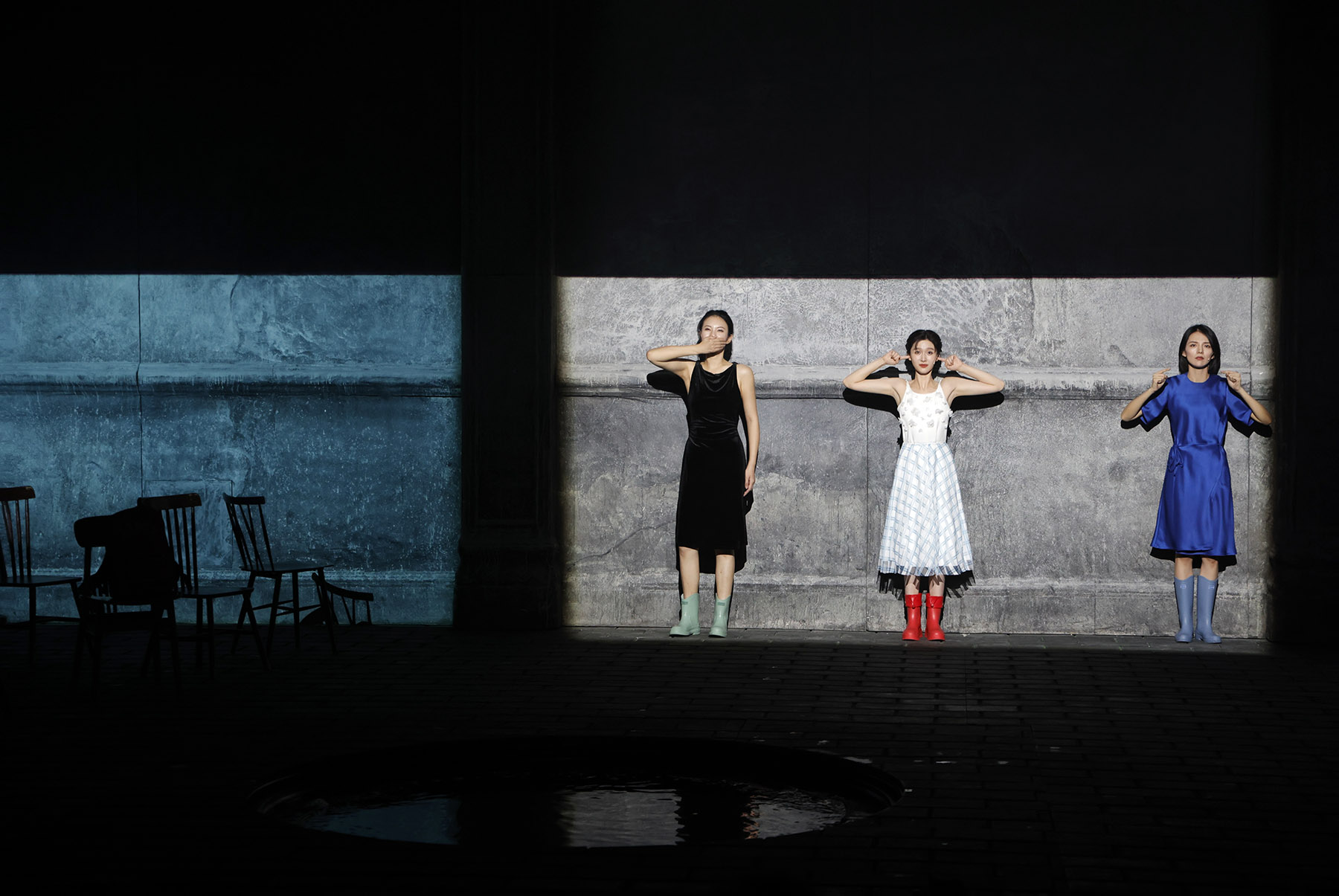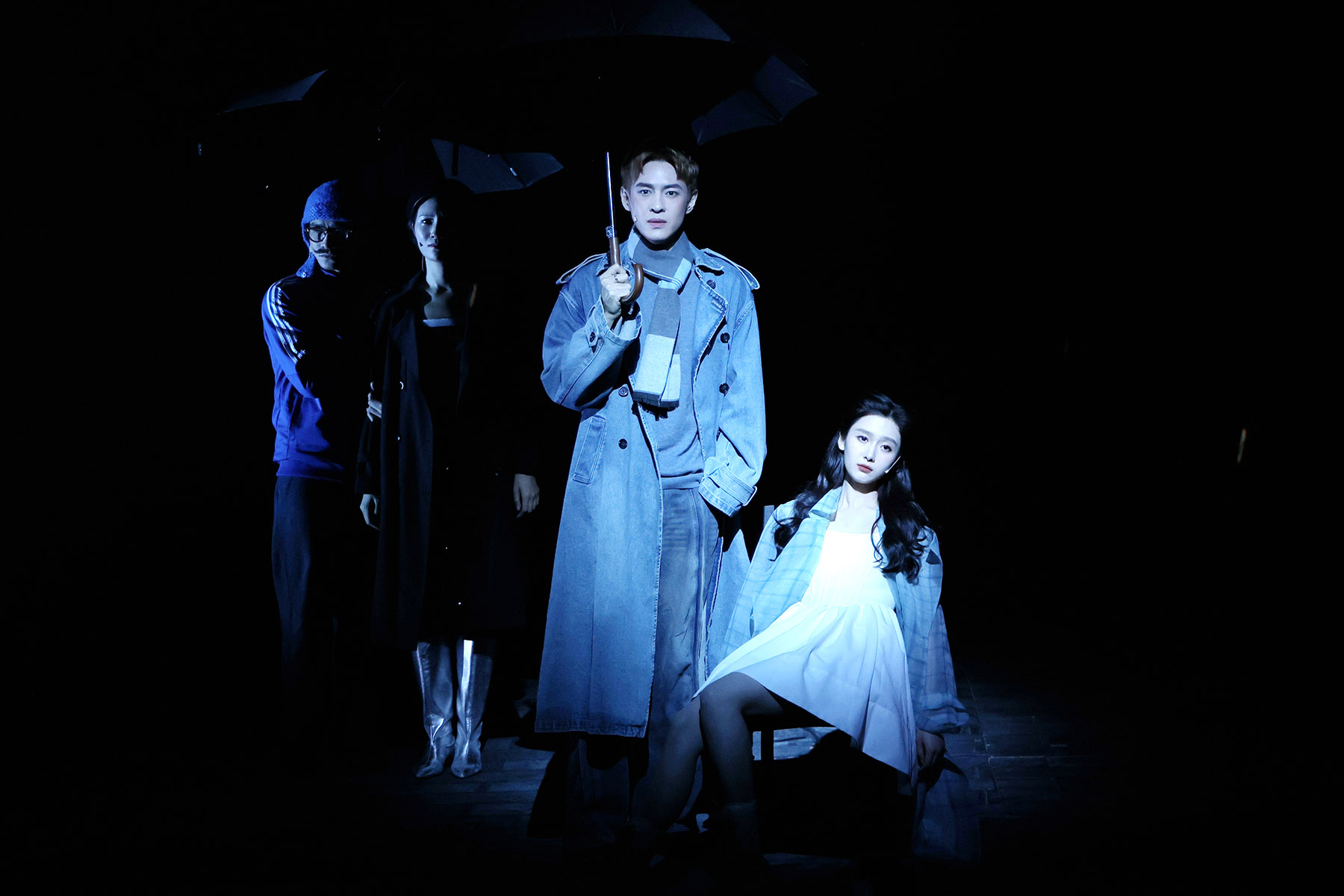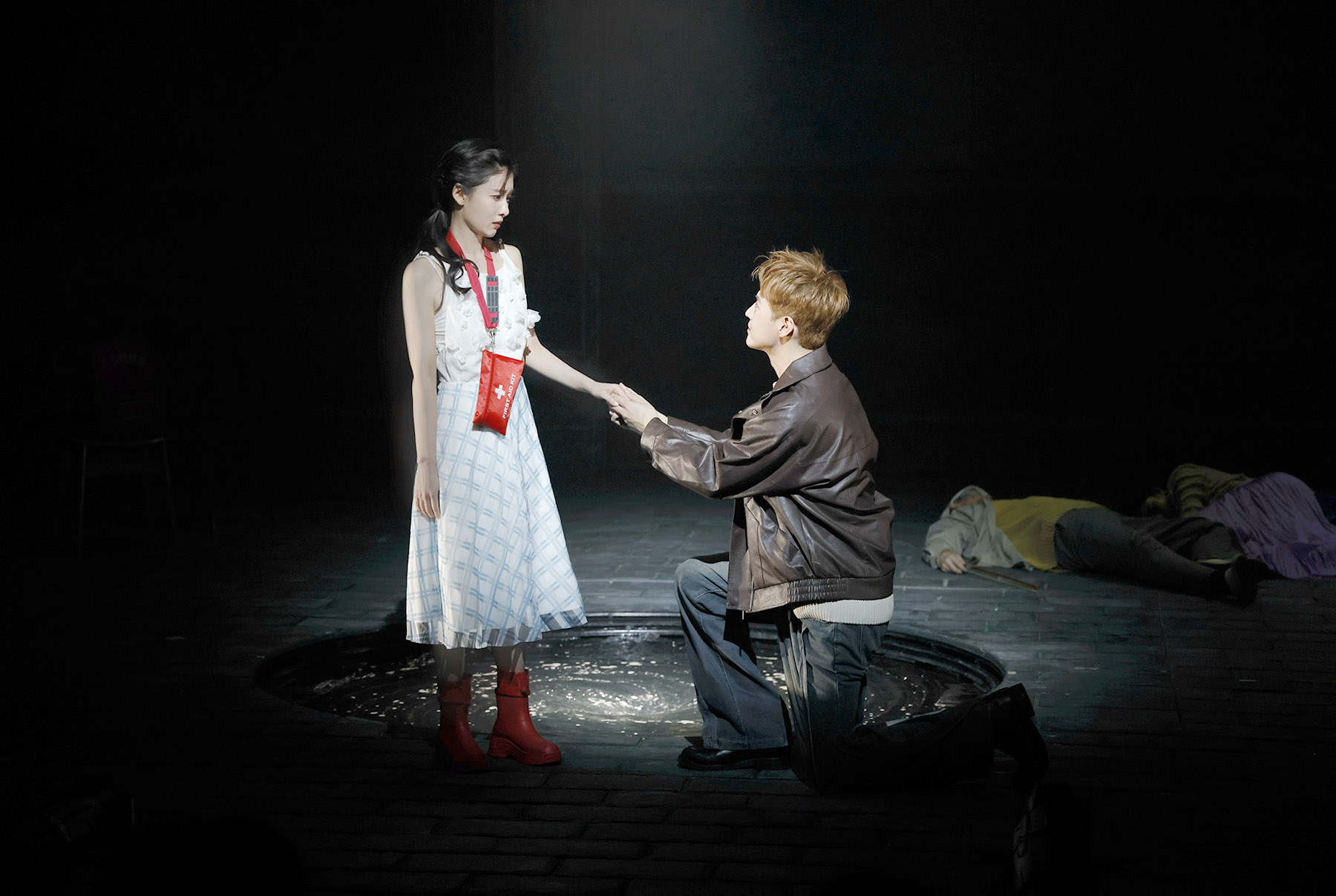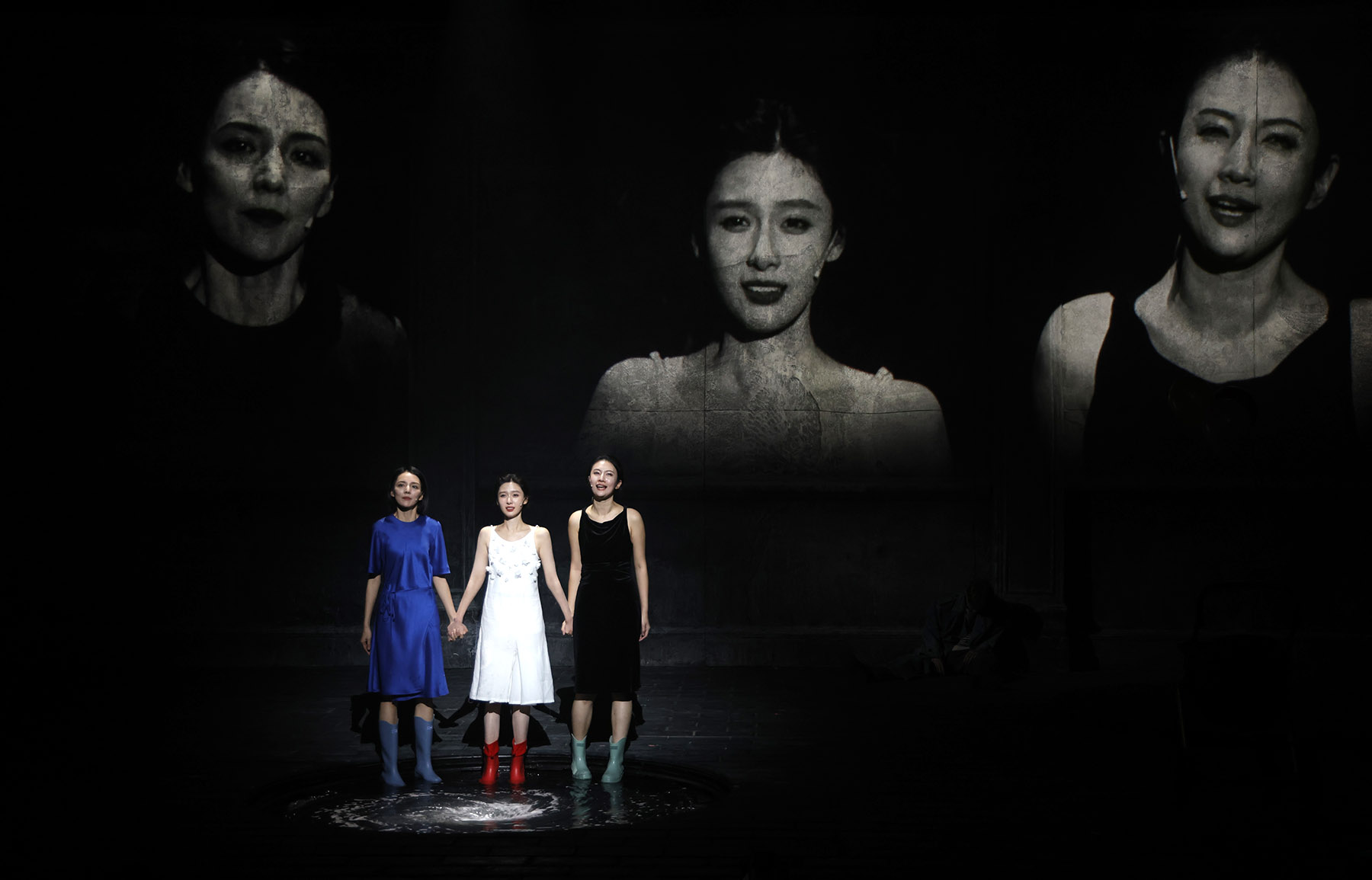Adaptation of master writer's famous play places a fresh spin on a Russian classic, Cheng Yuezhu reports.

Some works of theater have a timeless nature, so much so that no matter how many times they are performed, they remain relevant, according to Li Yu, a young director at the National Theatre of China. For him, Russian literary luminary Anton Chekhov's classic Three Sisters is one such play.
To mark both the 75th anniversary of the establishment of diplomatic relations between China and Russia and the 120th anniversary of Chekhov's death, the theater presented an adaptation of Three Sisters directed by Li, between Oct 26 and 30.
Set in a provincial town, the play follows the family of a military officer, with a focus on the three titular sisters — Olga, Masha and Irina — who live with their brother. They long to return to Moscow, where they had lived 11 years earlier, as they grapple with the struggles of everyday reality.
READ MORE: Art collector's legacy puts generosity in the frame
"One reason we chose to adapt Three Sisters is that in it, Chekhov focuses on the perspectives of young people. This is a play we can relate to more as young theater practitioners," Li says.
"Moreover, Three Sisters explores hope and disillusionment, and the faith of pursuing hope. This theme, I believe, is eternal. By staging the play today, we hope to establish a conversation with contemporary audiences, to convey the beauty of this classic, and to pass on its vitality and power."

The 32-year-old director says that he was first introduced to the play 10 years ago, when he was pursuing undergraduate studies in directing at the Central Academy of Drama. At the time, one of his teachers was putting on the play, and he read the script before attending the performance.
Although he was unable to fully understand the play, he felt its emotional impact, for example, the sisters' urge to return to Moscow.
"I feel that people always crave the unattainable. Perhaps this sense of discontent and pursuit drives us forward and propels the progress of society," Li says.
Li himself once had a longing to go to Moscow. After completing undergraduate studies in 2018, he pursued a master's degree in directing at the Russian Institute of Theatre Arts in Moscow.
"I've always liked Chekhov's work. Another reason was that the teaching methods at the Central Academy of Drama were heavily influenced by the Russian system, so I felt a strong urge to go to the birthplace of the Russian theatrical tradition and gather firsthand experience," Li says.

After completing his studies in 2021, he sought opportunities to work with theater festivals. Last year, he was selected for the second season of a young directors' support program by the National Theatre of China, which led to him joining the company.
Because the production crew is entirely comprised of young theater practitioners, Li removed some of the older characters in his adaptation to concentrate on the younger ones.
The play makes use of a range of music, including classic, jazz and rock, which creates a playful, lighthearted mood for the first half, before morphing into a more sci-fi, futuristic ambience with the use of post-punk and electronic music in the second half.
It also draws inspiration from cinematic techniques and uses live video projections to amplify the acting or show perspectives the audience cannot otherwise see.
"Everything happens in real time, as is the case with live theater. The video enhances the performance, offering new perspectives and broadening spatial possibilities of the stage," he says.

While remaining more or less faithful to Chekhov's original, the production reworks the script into 24 vignettes that intensify the drama.
"I mainly adjusted and rearranged the structure, but preserved the four acts. This is a play that I admire and to which I would like to stay true, so my aim is to create a dialogue with the master, while making it more accessible to the Chinese audience and easier for our actors," he says.
Although the play's faith in striving for a meaningful life resonates with a modern audience, Li sought to make the classic even more relevant to Chinese theatergoers by narrowing the cultural distance.
"Sometimes, I felt we were not staging a play from another country. The actors are not Russian in their appearance or mannerisms. The only unavoidable aspect is the Russian zeitgeist and ethos embedded in Chekhov's work," Li says.
"So we set a guiding principle, that is, we do not try to resemble the characters in appearance, but strive to connect with their psyches. We have worked hard to make the characters portrayed by Chinese actors relatable and believable."

On Nov 11, a seminar hosted at the National Theatre of China brought performing arts experts and scholars together to comment on the production.
ALSO READ: From Russia, with love
Wang Yichuan, vice-chairman of the China Literature and Art Critics Association, said that through its stage art and music design, restructuring of the plot, and well-crafted character development, the production effectively conveyed the essence of the original, and achieved an aesthetic balance between light and dark moods.
Contact the writer at chengyuezhu@chinadaily.com.cn


